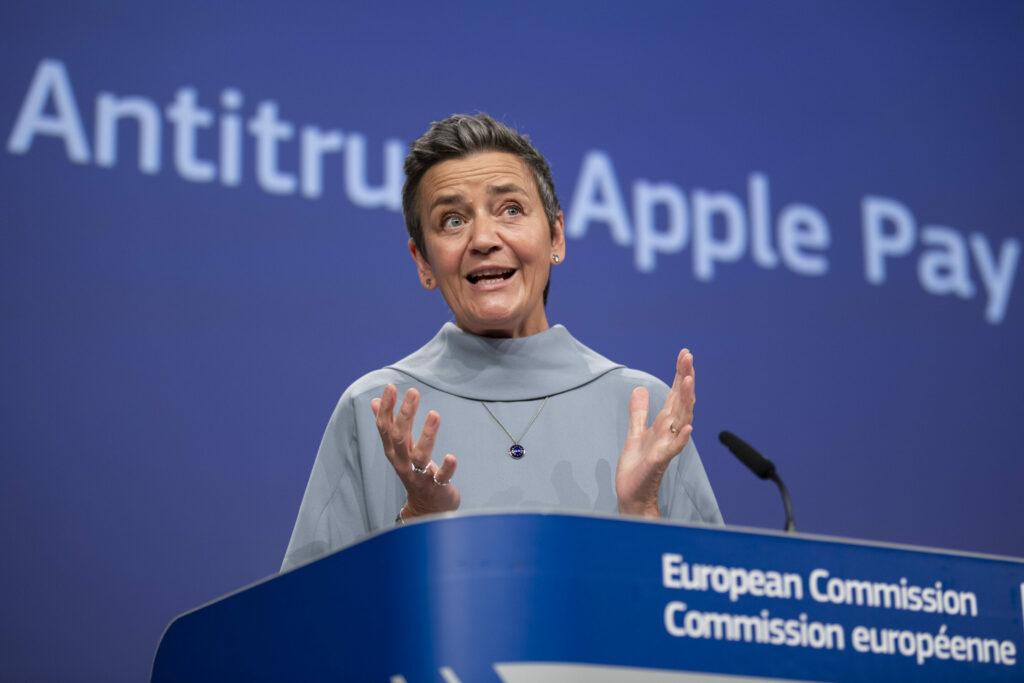Apple has agreed to grant rivals access to contactless payment technology on iPhones following an investigation by the European Commission found that it was abusing its dominant market position by only allowing Apple Pay to use the feature.
The Commission confirmed on Thursday that Apple has made a number of commitments to address competition concerns, which the Commission has made legally binding under EU antitrust rules.
To date, Apple has refused to grant rivals access to near-field communication (NFC) or "tap and go" technology used on iPhones to pay in store and online. It has only allowed access to the company's own mobile wallet offering: Apple Pay.
In June 2020 the Commission launched a formal antitrust investigation, and made a preliminary finding that Apple was abusing its dominant position in the smartphone market by not making the contactless payment technology available to third party mobile wallet developers.
Brussels argued that Apple's refusal to allow Apple Pay's rivals access led to less innovation and choice for iPhone users, in breach of EU rules which prohibit the abuse of a dominant position.
It is not the first time that the global tech giant has come under fire from the EU for breaching competition rules, with the Commission also calling out the tech company for squeezing out competitors on its app store and in the music streaming market.
Commitment to grant European rivals access
Since January of this year, the Commission has been market testing commitments suggested by Apple to settle the contactless payment case.
The final agreed commitments include allowing third party developers in the European Economic Area (EEA) access to the NFC technology free of charge, and to make it easy for iPhone users to set a payment app other than Apple Pay as the default.
Apple has also agreed to allow third party developers to use functionalities such as double-clicking to launch payments apps, and authentication features like Touch ID, Face ID and device passcodes.
The tech giant must make good on its commitments by 25 July, which will then be legally binding in the EEA for ten years.
If a company is found to be in breach of antitrust rules, including binding commitments, the Commission can impose a fine of up to 10% of its total annual turnover, or a periodic payment of 5% per day of its daily turnover for every day of non-compliance.
With a reported turnover of $383 billion (€353 billion) in 2023, the maximum penalty for breaching EU competition rules could have cost Apple around €35 billion.
Margrethe Vestager, executive vice-president in charge of competition policy at the Commission, said that Thursday's decision "opens up competition" in a crucial sector by preventing Apple from excluding other mobile wallets from the iPhone’s ecosystem.
"From now on, competitors will be able to effectively compete with Apple Pay for mobile payments with the iPhone in shops. So consumers will have a wider range of safe and innovative mobile wallets to choose from," she said.

